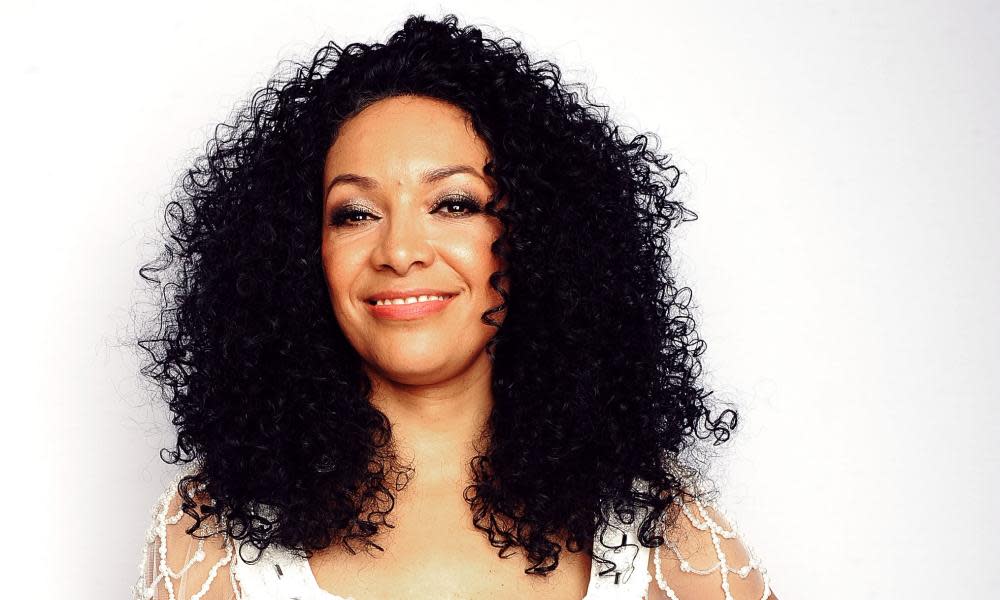Mobo founder Kanya King: 'I’ve been fighting to break down barriers. It's isolating'

“It was almost like the world had woken up,” says Kanya King, the Mobos founder, who is discussing an open letter she sent to the culture secretary, Oliver Dowden, in June. Released in the wake of the Black Lives Matter protests this summer, it was a personal account of the systemic racism she has faced since starting the music awards in 1996, from a hostile press to apathetic record labels.
After it was published, friends and industry connections got in touch, some to say how they were surprised at the extent of the discrimination, but also because they wanted to know more. “For the first time they felt comfortable wanting to listen to conversations about race,” she says. “It was one of those things where previously you didn’t really talk it about because you don’t want people to say you have a chip on your shoulder.”
That more open and honest setting sounds like the perfect place for the Mobos to return. A hiatus in 2018, which was meant to help the company expand into a “brand new era” where it would grow its events business, became a two-year break. As time went on, some feared it might not return at all.
King said the gap – which came at a time when black British music, with Stormzy, Dave and the jazz scene, was going global – was not about struggling with sponsorship (something she has spoken about frequently) but more about existential reflection. “We were asking ourselves: is Mobo still needed?” she says.
The campaigning of Black Lives Matter, which has grown into a global protest movement in the interim, would suggest that it is indeed needed. King says the protests’ impact has meant brands and the wider music industry now want to have “a conversation we haven’t had. It’s been in that ‘too risky’ box, they put it aside. People aren’t looking for perfection, but they want to see progress. Not saying or doing anything tells you a lot about your values and who you are.”
The awards are returning during a year in which the British music landscape is in rude health. Established nominees such as Stormzy, Jorja Smith and Lianne La Havas sit alongside newer names such as Digga D and Tiana Major9, of whom King is a big fan.
During the hiatus, King considered what impact the awards have had, not only on British music, but on herself. “It’s been a labour of love,” she says. “I’ve put my life and soul into this fight over the years, while being told that, you know, inequality is fine and there’s no problem. I’ve been fighting for a long time to try to break down barriers … it’s been challenging and isolating.”
King, who started her career as a TV producer, twice remortgaged her house in order to fund the awards. Once, to get them underway, in the mid-90s, after spotting a gap in the market; and again in 2002 after sponsors pulled out. But despite hosting performances by Rihanna, Amy Winehouse and other A-list names, and championing homegrown scenes such as UK garage, the event generated a steady stream of negative press coverage linking it with violence, which undermined sponsorship deals.
The letter was a way to bear witness to that treatment and was also a deeply personal insight into her life, which started in north London as the youngest of eight children in a mixed Ghanaian and Irish household.
She says her early experiences, for example watching her Ghanaian father struggle to get work while films such as Zulu depicted Africans as savages, are what have driven her. “I have a bigger purpose in my life,” she says. “My father died at young age, and seeing people not have the opportunity to achieve their dreams, that’s what motivates and drives me.
“Growing up, there were so many people who were incredibly talented but were missing out,” she says. “You shouldn’t have to create an event or create a business to get into certain industries.”
One persistent criticism of the Mobos is that its scope is too narrow, whether that’s not embracing British genres such as dubstep when they emerged, or not promoting the British jazz scene’s renaissance strongly enough. This week it has been accused of not making enough room for black rock acts.

Nova Twins, a band from Essex and London, wrote to King and Mobos to ask for a rock category in order to pay “tribute to the POC originators and founders of rock’n’roll and rhythm’n’blues”. King said it’s something she’s considering, but wouldn’t confirm it would happen in 2021. “If what we were doing didn’t make an impact then nobody would want to be part of it,” says King. “So for me, that’s a positive.”
King’s parents wanted her to be a teacher so she could be a positive influence on young people’s lives. The Mobo awards aren’t a conventional classroom, but she’s hopeful her parents would be proud of her achievements. “They wanted me to have a safe secure job and felt that I could have an amazing impact on young people. I guess in many ways I feel that I’m conveying a similar message,” she says. “Just by different means.”
The Mobo awards are on 9 December at 7pm. Watch live on YouTube or on BBC One at 10.45pm

 Yahoo Movies
Yahoo Movies 
